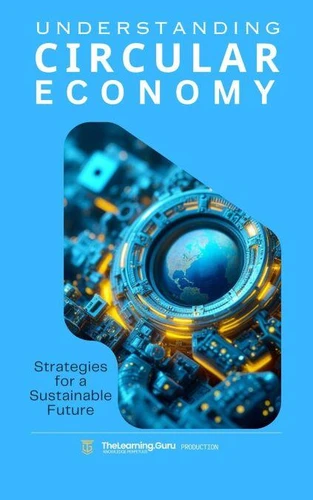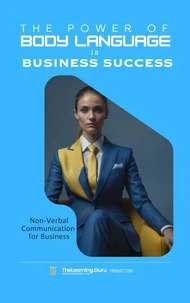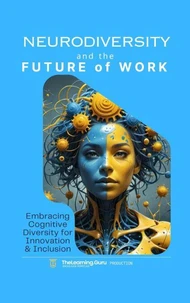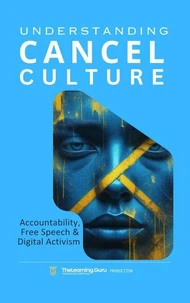Understanding The Circular Economy: Strategies for a Sustainable Future
Par : ,Formats :
Disponible dans votre compte client Decitre ou Furet du Nord dès validation de votre commande. Le format ePub est :
- Compatible avec une lecture sur My Vivlio (smartphone, tablette, ordinateur)
- Compatible avec une lecture sur liseuses Vivlio
- Pour les liseuses autres que Vivlio, vous devez utiliser le logiciel Adobe Digital Edition. Non compatible avec la lecture sur les liseuses Kindle, Remarkable et Sony
 , qui est-ce ?
, qui est-ce ?Notre partenaire de plateforme de lecture numérique où vous retrouverez l'ensemble de vos ebooks gratuitement
Pour en savoir plus sur nos ebooks, consultez notre aide en ligne ici
- FormatePub
- ISBN8230526490
- EAN9798230526490
- Date de parution20/02/2025
- Protection num.pas de protection
- Infos supplémentairesepub
- ÉditeurIndependently Published
Résumé
This book provides a comprehensive exploration of the circular economy, a sustainable alternative to the traditional linear economic model. Readers will learn key principles, strategies, and innovations driving circularity across industries. Through case studies, practical applications, and expert insights, learners will gain actionable knowledge on waste reduction, resource recovery, sustainable design, business models, and policy frameworks.
Learning Outcomes Define and explain the core principles of the circular economy. Compare and contrast linear and circular economic models. Identify strategies for waste reduction, resource recovery, and sustainable design. Analyze business models that support circular economy transitions. Evaluate the role of policy and regulation in advancing circular practices. Assess consumer behavior's impact on circular economy adoption.
Apply circular economy concepts to real-world case studies and industry trends. Develop actionable plans for implementing circular economy principles in businesses and communities. Key Takeaways Circular economy principles can drive environmental sustainability and economic resilience. Waste reduction, resource recovery, and sustainable design are fundamental to circularity. Businesses can benefit from innovative models such as Product-as-a-Service and closed-loop supply chains.
Policy and regulatory frameworks play a crucial role in facilitating circular economy adoption. Consumer awareness and behavioral change are essential for widespread implementation. Emerging technologies, such as AI, IoT, and blockchain, enhance circular practices. Urban development strategies can integrate circular economy principles for sustainable cities.
Learning Outcomes Define and explain the core principles of the circular economy. Compare and contrast linear and circular economic models. Identify strategies for waste reduction, resource recovery, and sustainable design. Analyze business models that support circular economy transitions. Evaluate the role of policy and regulation in advancing circular practices. Assess consumer behavior's impact on circular economy adoption.
Apply circular economy concepts to real-world case studies and industry trends. Develop actionable plans for implementing circular economy principles in businesses and communities. Key Takeaways Circular economy principles can drive environmental sustainability and economic resilience. Waste reduction, resource recovery, and sustainable design are fundamental to circularity. Businesses can benefit from innovative models such as Product-as-a-Service and closed-loop supply chains.
Policy and regulatory frameworks play a crucial role in facilitating circular economy adoption. Consumer awareness and behavioral change are essential for widespread implementation. Emerging technologies, such as AI, IoT, and blockchain, enhance circular practices. Urban development strategies can integrate circular economy principles for sustainable cities.
This book provides a comprehensive exploration of the circular economy, a sustainable alternative to the traditional linear economic model. Readers will learn key principles, strategies, and innovations driving circularity across industries. Through case studies, practical applications, and expert insights, learners will gain actionable knowledge on waste reduction, resource recovery, sustainable design, business models, and policy frameworks.
Learning Outcomes Define and explain the core principles of the circular economy. Compare and contrast linear and circular economic models. Identify strategies for waste reduction, resource recovery, and sustainable design. Analyze business models that support circular economy transitions. Evaluate the role of policy and regulation in advancing circular practices. Assess consumer behavior's impact on circular economy adoption.
Apply circular economy concepts to real-world case studies and industry trends. Develop actionable plans for implementing circular economy principles in businesses and communities. Key Takeaways Circular economy principles can drive environmental sustainability and economic resilience. Waste reduction, resource recovery, and sustainable design are fundamental to circularity. Businesses can benefit from innovative models such as Product-as-a-Service and closed-loop supply chains.
Policy and regulatory frameworks play a crucial role in facilitating circular economy adoption. Consumer awareness and behavioral change are essential for widespread implementation. Emerging technologies, such as AI, IoT, and blockchain, enhance circular practices. Urban development strategies can integrate circular economy principles for sustainable cities.
Learning Outcomes Define and explain the core principles of the circular economy. Compare and contrast linear and circular economic models. Identify strategies for waste reduction, resource recovery, and sustainable design. Analyze business models that support circular economy transitions. Evaluate the role of policy and regulation in advancing circular practices. Assess consumer behavior's impact on circular economy adoption.
Apply circular economy concepts to real-world case studies and industry trends. Develop actionable plans for implementing circular economy principles in businesses and communities. Key Takeaways Circular economy principles can drive environmental sustainability and economic resilience. Waste reduction, resource recovery, and sustainable design are fundamental to circularity. Businesses can benefit from innovative models such as Product-as-a-Service and closed-loop supply chains.
Policy and regulatory frameworks play a crucial role in facilitating circular economy adoption. Consumer awareness and behavioral change are essential for widespread implementation. Emerging technologies, such as AI, IoT, and blockchain, enhance circular practices. Urban development strategies can integrate circular economy principles for sustainable cities.






